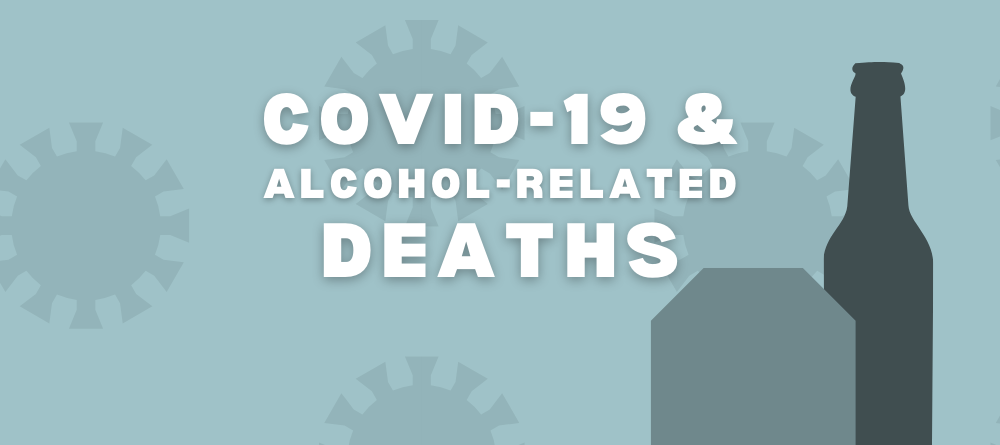Study: Alcohol-Related Deaths Increased 25% in First Year of the Pandemic
According to recent research published in the Journal of the American Medical Association, the number of alcohol-related deaths increased by 25.5% between 2019 and 2020. The study analyzed causes of death for people 16 and older as reported from the National Center for Health Statistics over the course of 2019 and 2020. Researchers reported on the number of deaths that listed alcohol as a contributing factor. In 2019, the number of reported deaths in the United States related to alcohol use was 78,927; in 2020, that number jumped to 99,017.
The same study reports that alcohol-related deaths have been on the rise, but the rate of increase was only an average of 2.2% per year between 1999 and 2014. Compared to all-cause deaths, which increased at a rate of 16.6% in the first year of the pandemic, this change is cause for concern.
What is it about the pandemic that has caused us to see such a drastic increase in alcohol-related deaths?
Stress and Isolation in the COVID-19 Pandemic
Alcohol consumption, though not a healthy coping mechanism, is often used by individuals to manage the stressors of life. During the COVID-19 pandemic, especially in the beginning months, stress levels increased and many healthy coping mechanisms were not readily available. Recently, CNN reported on this study and quoted Aaron White, a neuroscientist at the National Institute on Alcohol Abuse and Alcoholism, who said:
“It’s not uncommon for people to drink more when they’re under more duress, and obviously, the pandemic brought a lot of added stress to people’s lives. In addition to that, it reduced a lot of the normal outlets people have for coping with stress, [like] social support and access to gyms.”
The COVID-19 pandemic increased feelings of isolation for many as we were asked to stay home and reduce our interactions with others. Working from home became the norm, and our daily in-person conversations were almost nonexistent. For those who have always struggled with feelings of loneliness, these new standards only heightened those emotions. It stands to reason, then, that substance use would increase alongside feelings of isolation.
Reduced access to healthy coping mechanisms also likely contributed to this increase in alcohol-related deaths. Many people utilize public facilities such as fitness centers or group classes to manage their stressors, but those were no longer available to them at the height of the pandemic. The time people spent working to better themselves in the gym or build skills in various classes now had to be filled with something else. Often, those environments create accountability and stability for those who struggle with healthy coping skills, and the COVID-19 pandemic created barriers to meeting these needs. Increased substance use is a natural consequence of these circumstances, which likely contributed to the increase in alcohol-related deaths.
Lack of social support and access to supportive environments are both contributing factors to this growing issue. Supportive communities, such as Alcoholics Anonymous, create accountability and provide an opportunity for individuals to hear from the experiences of others in recovery. These programs, along with regular therapy and substance use treatment, can provide the support individuals need to maintain sobriety. When these were unavailable or became virtual, those in recovery suffered the consequences.
Support for Alcohol Use Disorders
The increased number of alcohol-related deaths between 2019 and 2020 is representative of the larger issue of increased substance use during this time. Despite the improvement in access to supports in the years following this increase, substance use remains a prevalent issue in the United States. With 60% of people reporting an increase in alcohol consumption during the COVID-19 pandemic, there is now more of a need than ever for quality alcohol abuse treatment.
At R&A Therapeutic Partners, we offer intervention, therapy, and family support services for those affected by alcohol abuse. We also offer customized outpatient treatment programs for those who qualify. Contact our team today to learn more about the professional care available to you.
At R&A Therapeutic Partners Raymond Estefania and Ana Moreno specialize in substance use and mental health disorder evaluations, treatment, intervention and therapeutic/educational consulting for clients throughout the greater South Florida area, as well as nationally and internationally. For more resources and information please visit Therapeutic-Partners.com or on Facebook.

